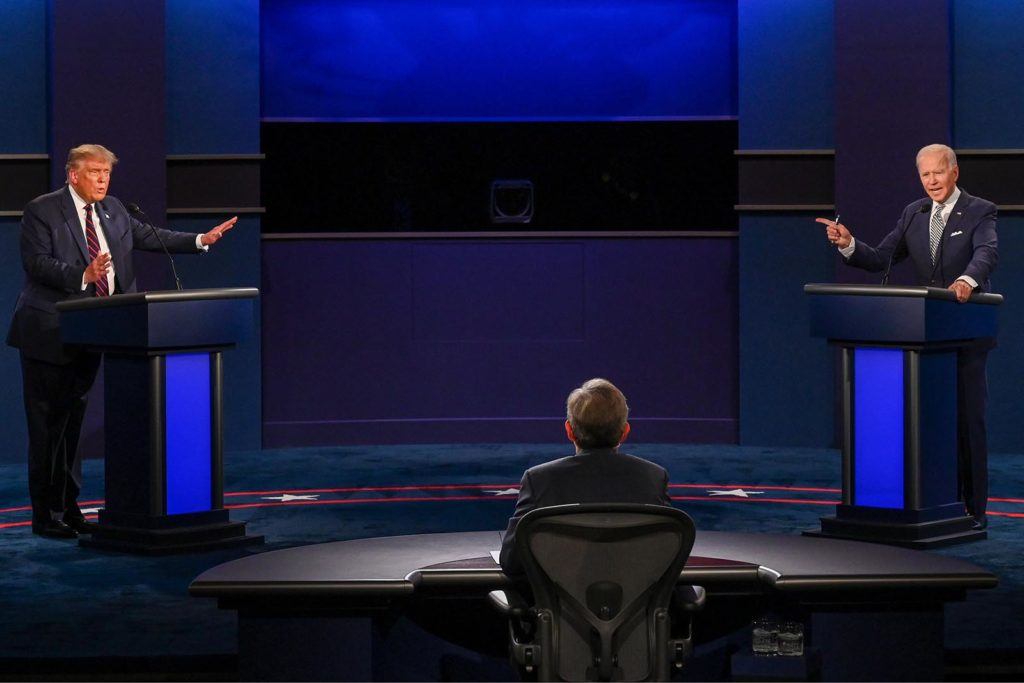by John Allen Paulos

The separation of church and state seems to be dissolving. It’s becoming increasingly easy for politicians and other public figures to cross the line between expressing their faith and aggressively proclaiming it and its alleged real-world consequences. Although often leading to social strife and intolerance, such overweening proclamations are growing in frequency. They may be cumulative and insidious like the Supreme Court’s recent okay for coaches to publicly pray at the 50-yard line after a game, or they may be all-out assaults such as GOP Congresswoman Lauren Boebert’s “I’m tired of this separation of church and state junk.”
Because religion and religious ideas are being so publicly professed, political candidates and others should get used to the free expression of doctrines contrary to their own, in particular to irreligious perspectives. People’s religiosity naturally invites questions about their beliefs and the reasons for them and these questions, I think, should be a bit more pointed than the usual softball queries about the role of faith in their lives.
Below are a few such questions that I would like to see directed to political candidates during debates or press conferences. You can imagine the attendant microphones and cameras, moderators and reporters. The questions may seem commonsensical to many, perhaps jejune to some, but I won’t hold my breath until one of them is asked.
- Religious people often accuse atheists and agnostics of arrogance. Do you agree? And isn’t it arrogant to say, as a presidential candidate has said, that he would like to amend the Constitution to better reflect “the word of the living God?” Needless to add, there are many other such pronouncements of religious swagger, both overt and subtle.
- Why in speeches ostensibly devoted to religious diversity and understanding is tolerance not explicitly extended to the millions of atheists and agnostics in this country, who, like me, are often seen as suspect by many religious people? Similar questions regarding the lack of tolerance should also be posed to those who subscribe to non-Christian religions.
- Is it right to suggest, as many have, that atheists and agnostics are depraved or somehow less moral even though the numbers on education, crime, divorce, alcoholism and other such metrics show that non-believers and their states of residence suffer far less from these dysfunctions than do believers and their states?
- Does God have a tax policy, a health care policy, a policy on Ukraine, gay marriage, climate change, transsexuals, or the Riemann hypothesis? And if God exists and were to have such a policy, how would you know what it is?
- How would you suggest that we reason with someone who claims that his or her decisions flow directly from and are compelled by fundamental religious principles, which nevertheless cannot be probed or questioned by those who don’t share them? Abortion is a topical example. Is this devout faith or a case of “my way or the highway” hiding in a religious cloak?
- Would you agree that a candidate who thought that we ought to revert to a barter system is not equipped to be a good steward for our troubled economy? Likewise, would you agree that someone who believes the Earth is 6,000 years old and that Noah’s Ark is an event in zoological history is unlikely to be an effective leader on issues such as stem cells, global warming, and renewable resources? There are non-religious, but analogous problems regarding other topical issues, say gun control (muskets vs. AR-15s).
- Do you recognize the danger of a “benign” theocracy developing in the United States? And do you think that American religiosity could threaten American dominance in science and technology or American commitment to a pluralistic democracy with civil rights for all?
- For a variety of reasons many intelligent people believe in God, many don’t, and some both do and don’t, God being for them a varied, somewhat nebulous construct. In any case, do you subscribe to any argument(s) for God’s existence other than the one that God exists simply because He says He does in a much revered tome that He allegedly inspired?
- For many people and cultures over the centuries, religion has been a source of ideas and stories that are enlightening, of ideals and values that are inspiring, of rituals and traditions that are satisfying. It has also led to hatred, cruelty, superstition, authoritarianism, credulity and fanaticism. What can you do to further the former and minimize the latter effects?
- Finally, do you agree that the expression of religious and irreligious beliefs in public and on secular occasions should be kept to a minimum or at least be conducted in as kindly and understanding a way as possible, and certainly without the fear of cancellation?
Lights down, microphones off, and Godspeed to the instant pundits…
***
John Allen Paulos is a Professor of Mathematics at Temple University and the author of A Mathematician Reads the Newspaper, Innumeracy, and a forthcoming book out in September, titled Who’s Counting –Uniting Numbers and Narratives with Stories from Pop Culture, Puzzles, Politics, and More.
